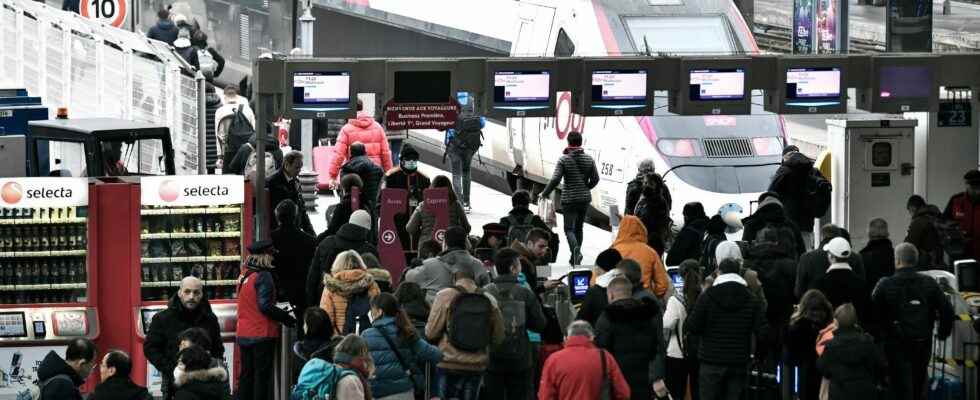Inflation, high-intensity war in Europe, energy crisis: one by one, the landmarks that used to structure the world are falling to the benefit of chronic instability. And yet, in this upset world, a few pillars still and always resist: will there be an SNCF strike a few days before the Christmas holidays? Because everything is possible in a country where, as in the fall, the staff of EDF nuclear power plants are on strike even though our country lacks electricity made in France!
Beyond the joke, these rituals raise a deeper question: to what extent is it possible to decarbonize our economy, that is to say to transform our modes of production and consumption, when the two companies which partly structure the energy landscape, the transport sector, regional planning and the industrial policy of our country remain structured around a system of social relations inherited from the immediate post-war period?
While we experience life-size what it means to lack electricity and are reduced to importing, massively and at great expense, electricity – dirty – from our neighbors, the French understand at their expense the strategic importance of EDF . Similarly, in a country where transport is the primary source of CO2 emissions, largely because road construction policy has de facto taken the place of land policy for several decades, the train is reaffirming its modernity. Yes, electricity and the train are furiously modern and furiously necessary to achieve carbon neutrality; but are EDF and the SNCF? Born and structured by and for the reconstruction of France in 1945, can they escape a profound reconfiguration when it comes to building another France, that of carbon neutrality?
The example of the 1970s
They were able to do this in the 1970s when the France of Pompidou and Giscard launched the two nuclear power and high-speed train programs. Didn’t they masterfully take up the challenge, with an EDF which connected three to four nuclear power stations to the network in the years 1980-1990 and the SNCF which transformed the map of France with its 200 TGV towns? Today too, these companies continue to adapt. The transformation, in 2018, of the SNCF into a public limited company is not insignificant: the injection of a financial culture into the SNCF house is more necessary than ever when the ambition of its president is to invest 100 billion euros to fifteen years for the company to take its share of the mobility decarbonization project. And what part! Neither more nor less than doubling the modal share of the train in transport to bring it to 20%, an extremely high ambition knowing that only Switzerland and Japan, namely two countries with a geography very constrained by their relief, display such levels ! Unlike an SNCF which tends to take relative autonomy, EDF returns to 100% in the bosom of the State, renationalization which is similar to a safeguard procedure at a time when the public authorities clearly lack vision. clear on energy policy. Because, strangely, the ultra-consensual slogan “we must get out of fossil fuels” cannot take the place of an energy strategy…
This difference in approach, on the part of the State, with regard to the two structuring companies of modern France is rich in lessons. Beyond legal structures and budgetary envelopes, the ability of EDF and SNCF to accelerate rather than slow down the transformation of our economy is closely linked to the evolution of their software, in particular their monopolistic culture. In the case of electricity, the so-called strategist State has locked itself into a “nuclear = EDF = EPR” impasse from which it now has to get out: if French-style liberalization has failed, it is because , it has in no way changed the monopolistic culture of the sector. At the time of the liberalization of transport, let us avoid repeating this error. The SNCF must transform itself to attract new customers. In this respect, the abolition of competing air links on journeys of less than two and a half hours is a bad signal, which perpetuates its monopolistic culture while favoring the car, its real competitor.
The French must change their behavior in the face of the climate challenge? Certainly, but this requires that they be accompanied by a profound cultural change in the large public service companies: go to the stations at Christmas to check whether the message has been received!
Cécile Maisonneuve is the founder of Decysive and advisor to the Energy and Climate Center at Ifri.
